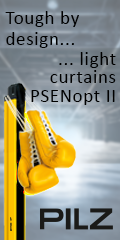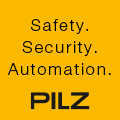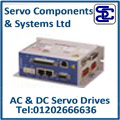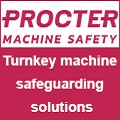
Posted to News on 15th Jun 2017, 12:56
Multiprotocol I/O modules simplify machines for global markets
With Profinet, EtherNet/IP and the fairly new EtherCAT protocol now available, there are multiple standards being used in industrial applications today for teams to understand and consider. It can be challenging, especially for machine builders that work internationally, to meet the expectations that come with this new landscape. Paul Just, global product line manager at Belden, discusses the topic.
One customer may need Profinet components, while another might require EtherNet/IP protocol standards. To meet both needs, machine builders typically change out each input/output (I/O) module, and in some cases the connectors, to meet the varying country-specific requirements. Thankfully, recent developments have shown there is a better way.
Priority 1: Seamlessly meeting multiple protocol standards
A machine builder for the packaging industry had this exact problem, and to address it, they set out to build a standard machine for a global food and beverage manufacturer. The customer needed to meet different, country-specific Ethernet protocols for its plant locations in Europe, which required Profinet PLCs, and South America, which relied on EtherNet/IP protocol standards.
Rather than change out each I/O module on the machines to meet the different requirements, the goal of the project was to find an easier and more cost-effective way to meet the machine requirements for use globally.
{s=Priority 2: Simplifying a complex supply chain}
To procure the parts needed, the machine builder bought and stored countless product variants through a wide and complex supply chain comprising many suppliers. Because of the complexity involved in this process, the machine builder had a secondary goal to simplify their supply chain and manage a smaller mix of suppliers.
Sourcing and stocking lots of product types - from different I/O modules and programmable logic controllers (PLCs), to varying connectors (four-pole and five-pole) - took up valuable time and storage space, and strained the budget. The team therefore needed to source and use products that offered variety and flexibility so they could do more with less.
The Outcome: I/O modules offer standard, simplified solution
To help the machine builder meet various protocols with the same machine design, the team explored using multiprotocol I/O modules in its network infrastructure to standardise programming bit-mapping and speed up engineering times.
The team needed I/O modules that:
- Met multiple industry protocols for global and regional use, including Profinet, EtherNet/IP and EtherCAT
- Allowed the use of current or old machine designs while offering the ability for future upgrades
- Withstood harsh industrial environmental conditions, such as vibration resistance in robotic applications and high-temperature wash-down procedures
- Could bridge longer distances (longer than 10m) between field-level modules
- Enabled them to stock fewer product types and variants and streamline their suppliers
- Offered fast and easy installation
The idea behind using multiprotocol I/O modules to reach these goals was that the machine builder would be better able to meet the needs of the end customer by using old machine designs, while still adhering to multiple country-specific standards through a multiprotocol system. The machine builder would no longer need to change the designs when there were size differences. The team could instead build a new machine and use compact modules to connect to the bigger modules on older machine designs with a universal mounting clip. This made it possible to meet the drilling hole dimensions of older machine designs without needing to completely re-design the new machine. They would also be able to:
- Simplify supplier orders: Fewer orders overall and product ID numbers to track for purchasing and procurement departments; pricing discounts from ordering in bulk
- Streamline machine design
- installation and maintenance: Fewer parts to train on, easier module replacements, less downtime and greater overall cost savings and efficiency gains
- Reduce storage space: Fewer types of devices to stock, less storage space needed for spare parts
The team ultimately sourced one multi-use, multiprotocol product from a single supplier, which not only streamlined the supply chain, but enabled them to use the same machine design and parts to meet the Ethernet protocols of any country or region.
Final thoughts: key lessons learned
There are valuable lessons to take away from this use case for other companies across industrial verticals. First, when teams simplify internal and company-wide processes, like the supply chain, it can deliver tremendous value for customers. The machine builder in this scenario was able to do much more for his client once the purchasing processes were streamlined and they had more resources on which to depend. The benefits of this were indirectly passed along to its client base.
From a communications and implementation perspective, using existing infrastructure in network upgrades and making them seamless for the customer is also a good reminder. Technological hiccups or long implementation processes can be a big turnoff, and these situations are easily preventable by having a strong network foundation in place and understanding which components can be swapped out or upgraded to get the desired outcome.
There is no 'one size fits all' solution, but the benefits of choosing components that meet multiple industry protocols can get teams pretty close. Success starts with understanding the end goal of the project, the I/O technology that is available, and then deciphering which specific features are going to help the team reach their business objectives.
To learn more about I/O modules and their role in machine building applications, see Adapt Machines to Meet Global Protocols with One I/O Module.















